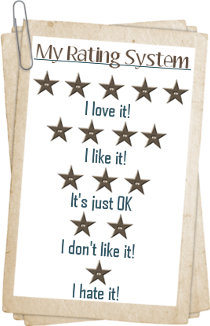
Seeing the Penny
by Jill Jepson
In my writing classes, I sometimes have my students describe a penny without looking at one. It could be any coin. Since I teach in the
The exercise is simple: Just describe by memory what a penny looks like on both sides. Nothing to it. We’ve all seen pennies—tens of thousands of them. Most of us have stuck a few of them in our mouths when we were little kids. We no doubt have a bunch of them in our pockets or purses right now.
The thing is, when I ask people to describe them, they always get it wrong. Most of the time, they get it completely, wildly wrong. They miss items. They put things in the wrong places. They have no idea what is written around the edge, or even that there is something written there. Sometimes they describe things that aren’t there, that have never been printed on the U.S. penny.
I use this exercise because it gets at one of the essential truths about writing: The hardest things in the world to notice are the ones we’re most familiar with. The trappings of everyday life are lost to us. We go through our days in a kind of blindness, hardly noticing the sun through the window, the sound of traffic in the distance, the faces of our loved ones. Young children pay attent ion to everything. They’ll point to a wart on Grandpa’s nose or a weed growing up through the sidewalk because it’s all new to them, all surprising. But as we get older, we become used to the world, and we stopped noticing. Once we know what a penny looks like—or an apple, a rose, the full moon—we stop paying attention to it. Gradually, we become numb.
ion to everything. They’ll point to a wart on Grandpa’s nose or a weed growing up through the sidewalk because it’s all new to them, all surprising. But as we get older, we become used to the world, and we stopped noticing. Once we know what a penny looks like—or an apple, a rose, the full moon—we stop paying attention to it. Gradually, we become numb.
That’s where writers come in. It’s our job to take the blinders off, to see the world with fresh eyes, to shake off the numbness. We have to become children again, to remember to notice, to become aware of what is happening right here, right now, everyday.
Most good writing doesn’t deal with things we’ve never experienced. It deals with things we experience all the time: love, fear, anger, loss, pleasure, joy. It makes us aware not of things we never knew, but of things we know so well we no longer pay attention to them. In this way, it wakes us up to the world around us. When we read a poem or paragraph that strikes a chord, there is a simultaneous feeling of surprise and familiarity. This usually isn’t because the writing tells us something we never conceived of. It’s because the writing has captured an image or feeling that we know well and made us look at it again.
This is what writers do. They give us a little shake and say, “Open your eyes. Take a look. Notice. Remember.” They urge us—they force us—to pay attention. This is both the writer’s gift and responsibility: To remind us how remarkable the world is.
Jill Jepson is a traveler, professor, and transformational life coach, and the author of three books and over 60 articles. She holds a Ph.D. in Linguistics from the





















2 comments:
Thanks for hosting Jill today, Lori!
Reminded me of a homework assignment in high school. We had to be the penny, imagine our lives, our looks, our feelings. It was actually quite fun. And you're right; I couldn't describe a penny correctly.
Post a Comment